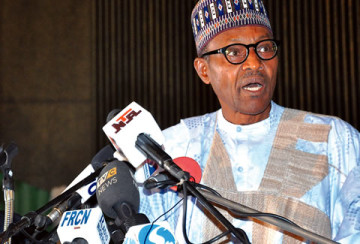By Ndidi Chukwu
To ensure that every woman have access to reproductive health and family planning commodities , the Nigerian government in 2013 committed 510 million naira about 0.187% of the health budget to fund family planning, but no amount was made available by the Nigerian government, in 2014, 414.5 million was required in Nigeria, a 0.192% of the 2014 health budget, but Nigeria recommended 750.3 m annual per capita for Family planning but could only provide 11.83, (1.6%) in 2014 to cater for the reproductive health needs of over 68 million females of the nation’s populace .
Findings indicate that Nigeria has not recorded significant improvement in its family planning uptake over the last 10 years. In reaction to this, a coalition, Association for the Advancement of Family Planning (AAFP) in Nigeria, has called for adequate funding for Family Planning to reduce Maternal and Child Mortality.
It said in 2012, the Nigerian government committed to increase its annual family planning and reproductive health procurement budget to about US $ 11, 35 million annually but this is yet to be completely effected. An analysis conducted by AAFP in 2015 to determine the level of funding for FP found the absence of sustained budget line. The recommended per capita cost for FP is N750 m and only N11.84 (1.6%) was provided for in 2014.
AAFP a coalition of family planning advocates in Nigeria, in media information dissemination on the status of funding for family planning observed that the current attitude of funding predisposes Nigeria to the dangers of a socioeconomic crisis of quality of life, development and reaping the nation of its democratic dividends.
Contraceptive prevalence rate (CPR) has remained the same at 10%, for the past 10 years with a marked difference between the urban and rural areas at (17% versus 6%). Chairman of AAFP Board of Trustees, Sani Umar Jabbi, said there is wide regional variation of the CPR across the geopolitical zones. Whereas 25% of the married women aged 15-49 years in the south west currently use modern contraceptives, less than 3% of women in Northeast are current users of modern contraceptives methods.
“our ultimate goal is to encourage women to space births so that we in Nigeria can reduce the burden of maternal and child deaths, this will only be achieved when we have the full support of all faith based organisations, who are key players for us to achieve quality of care for women and children, but more commitment is required of the Nigerian government to fund this process, most of the funding available for family planning in Nigeria are all from donors, we want the government to take ownership of this and give the quality of care required for every woman in Nigeria” Jabbi said.
On the Part of demand creation, Jabbi noted that the budgetary provisions for FP in Nigeria are grossly inadequate to allow individuals and couples to anticipate and attain their desired number of children and the spacing and timing of their births. He said “the federal government developed and costed a FP blueprint as an outcome of the commitment made at the 2012 London summit on Family Planning, with the goal to scale-up FP services and uptake, but there is not budget line for operationalising the 2012 commitment”
“If fund is provided for all currently married women who desire family planning to have their needs met, Nigeria’s mCPR would have been more than doubled its present value” said Dr. Ejike Oji AAFP coordinator. The coalition believes that successful FP programmes will reduce Nigeria’s Maternal Mortality Rate by 25-30%.
Chinwe Onumonu AAFP member said the consequences of maintaining the current situation in Nigeria will mean continued underfunding of family planning services, no improvement of Nigeria’s FP status, persistent gap between government and donor funding for FP, inadequate funding for logistics and Nigeria’s failure to meet the development window for becoming developed country.




